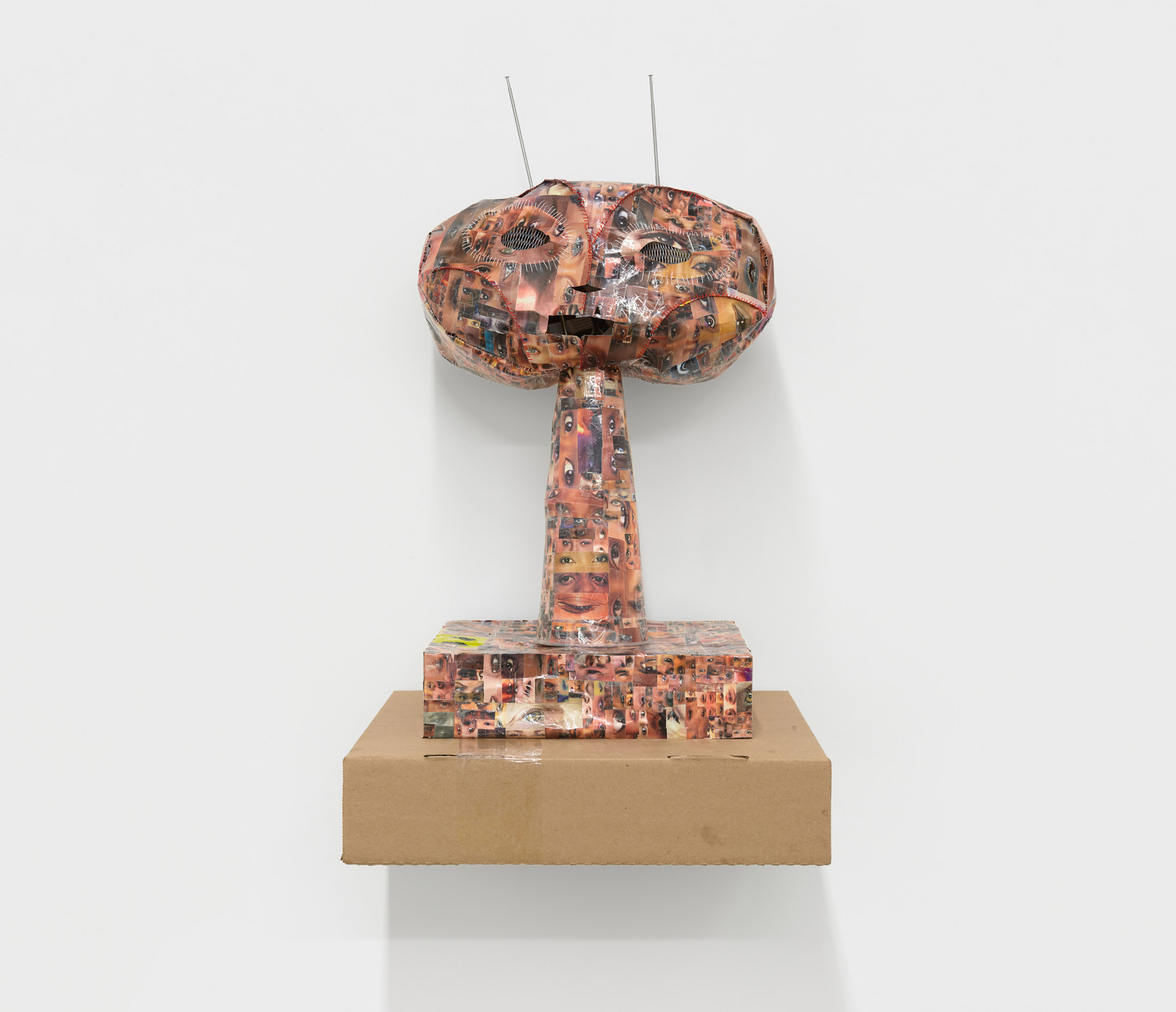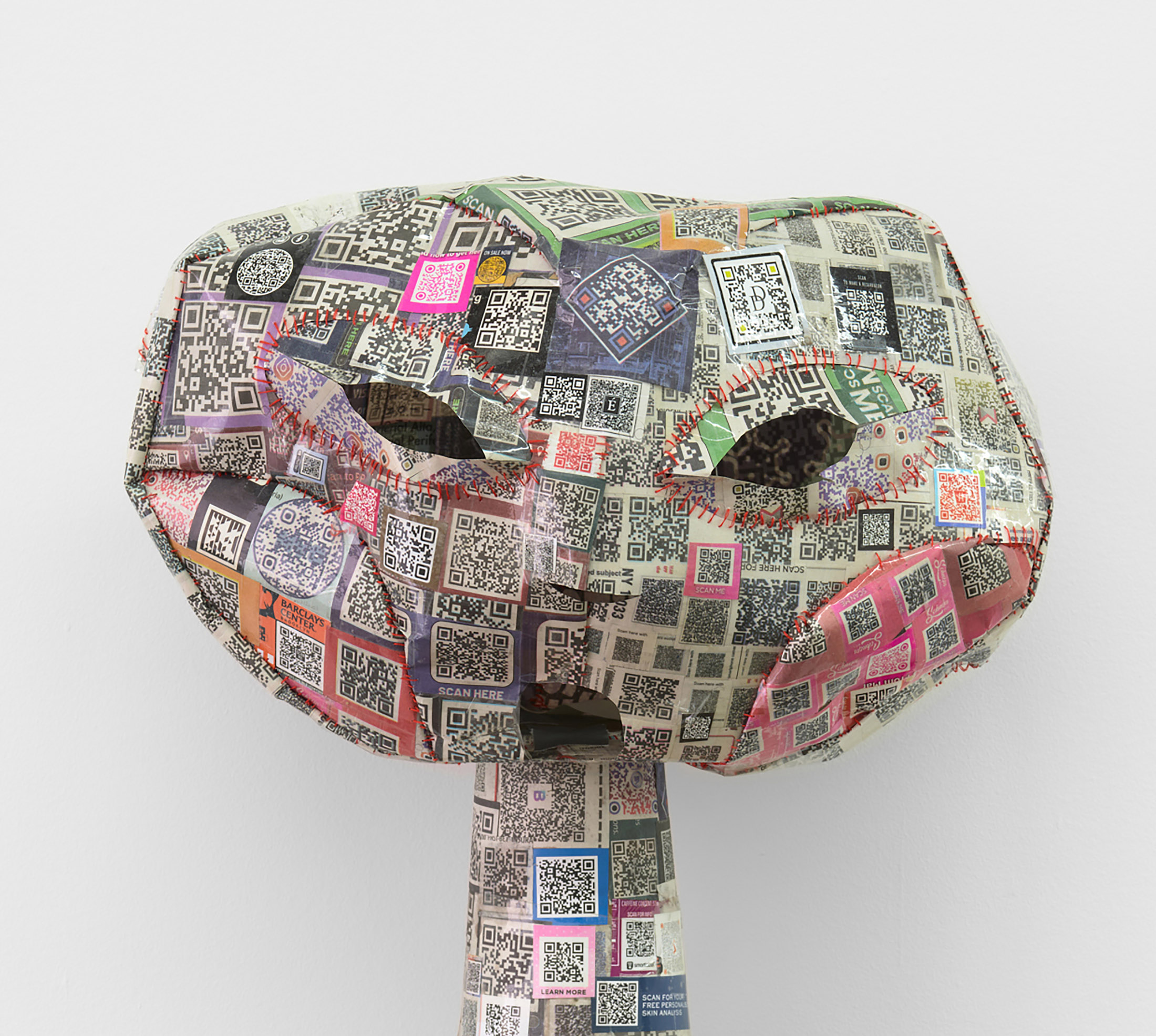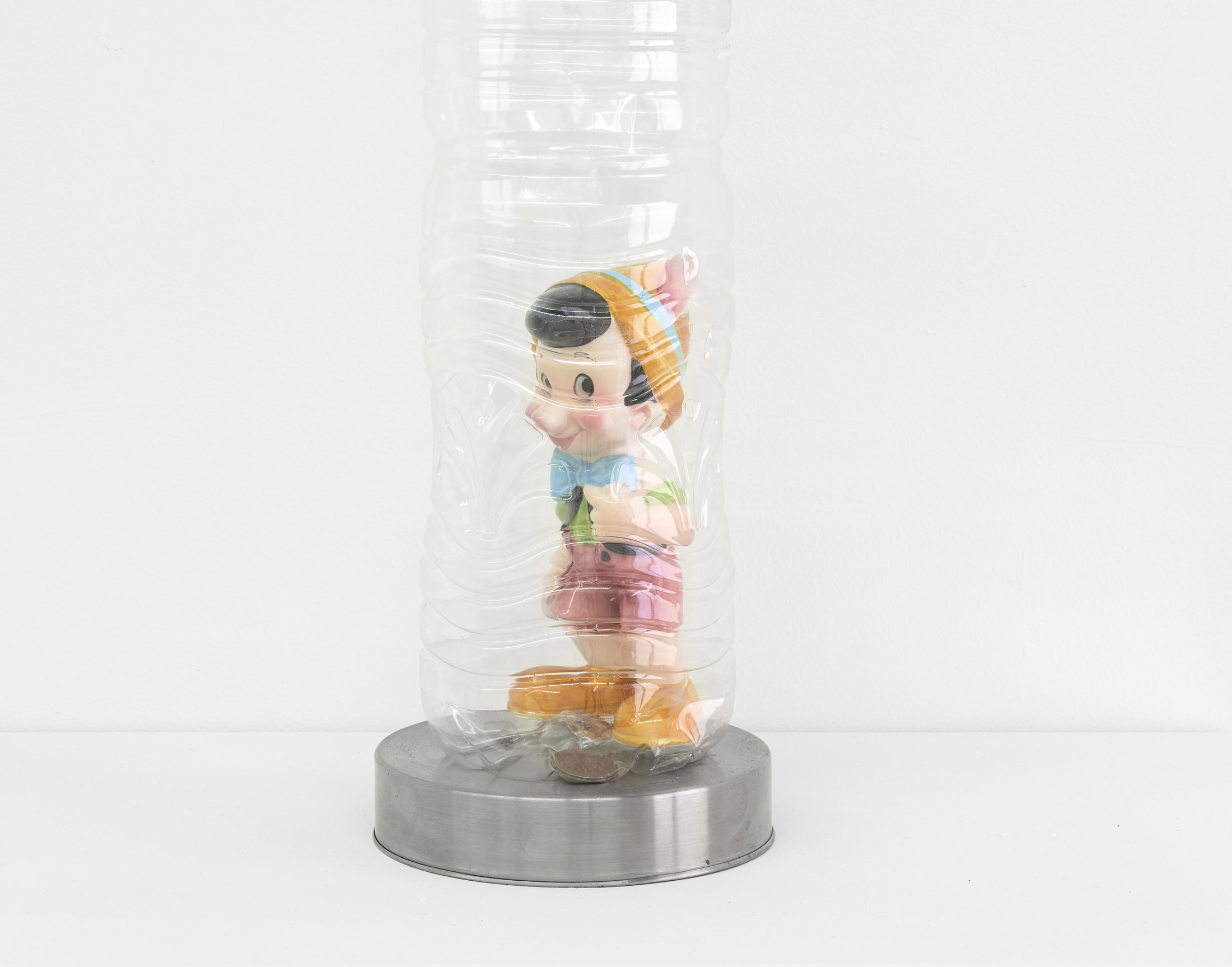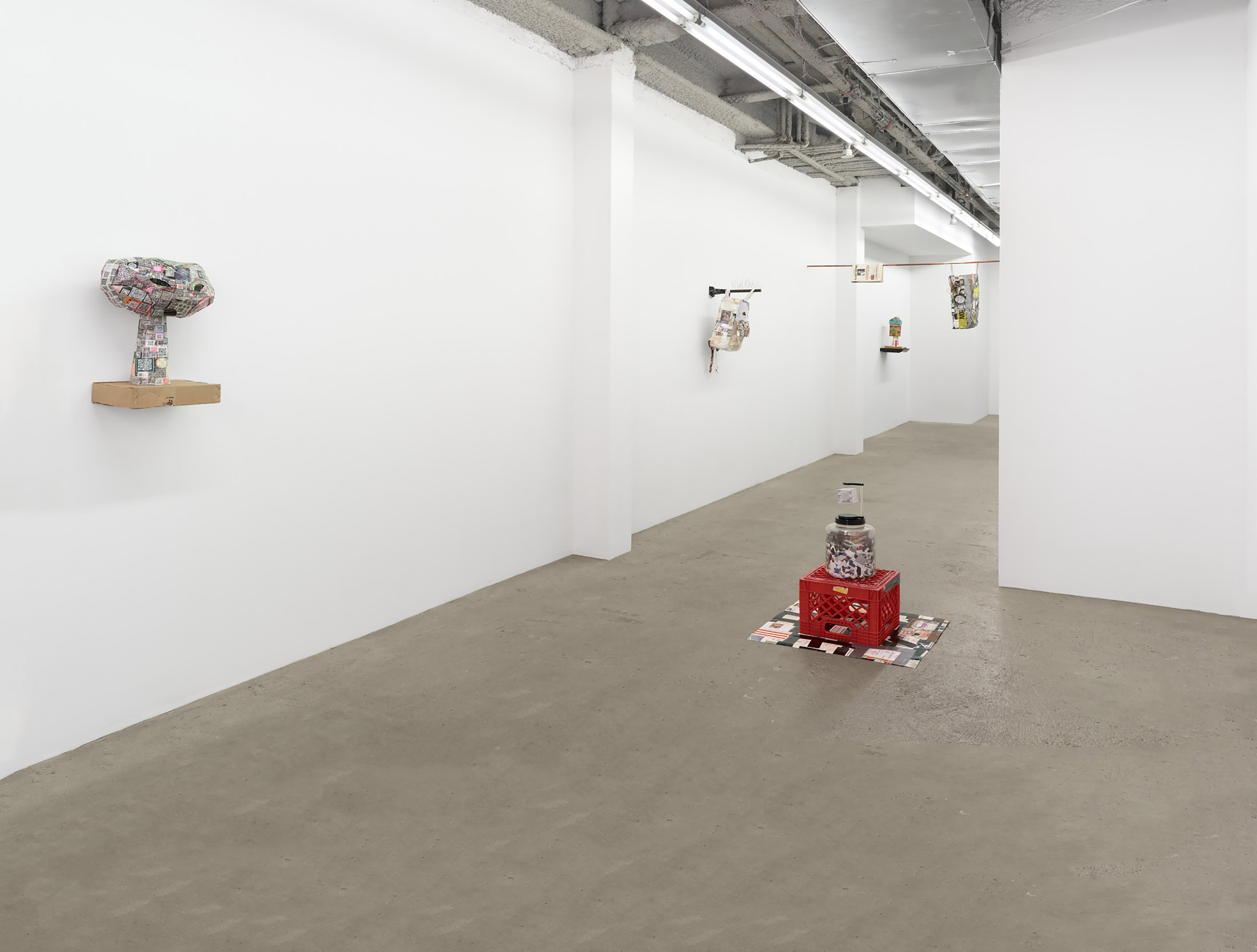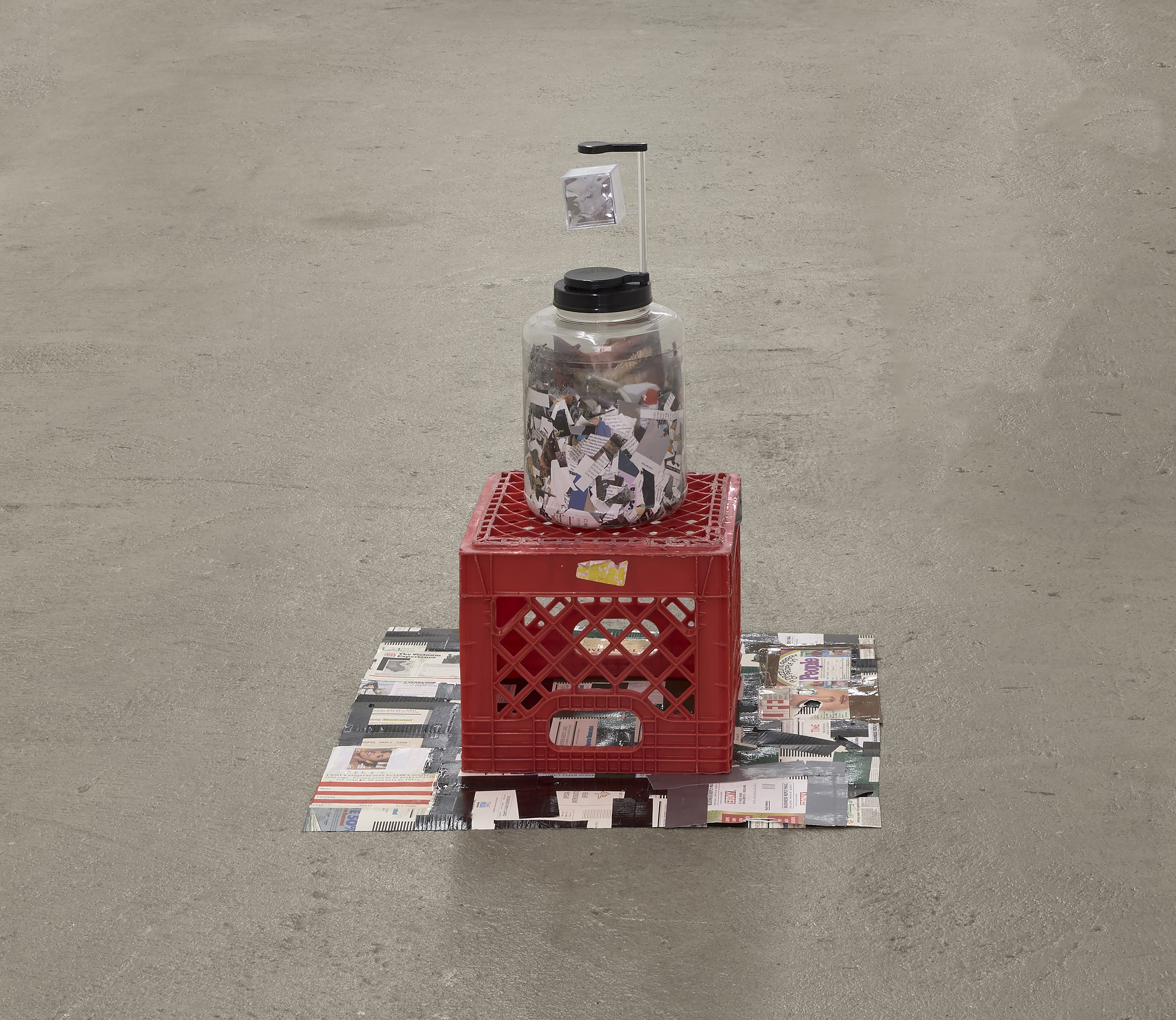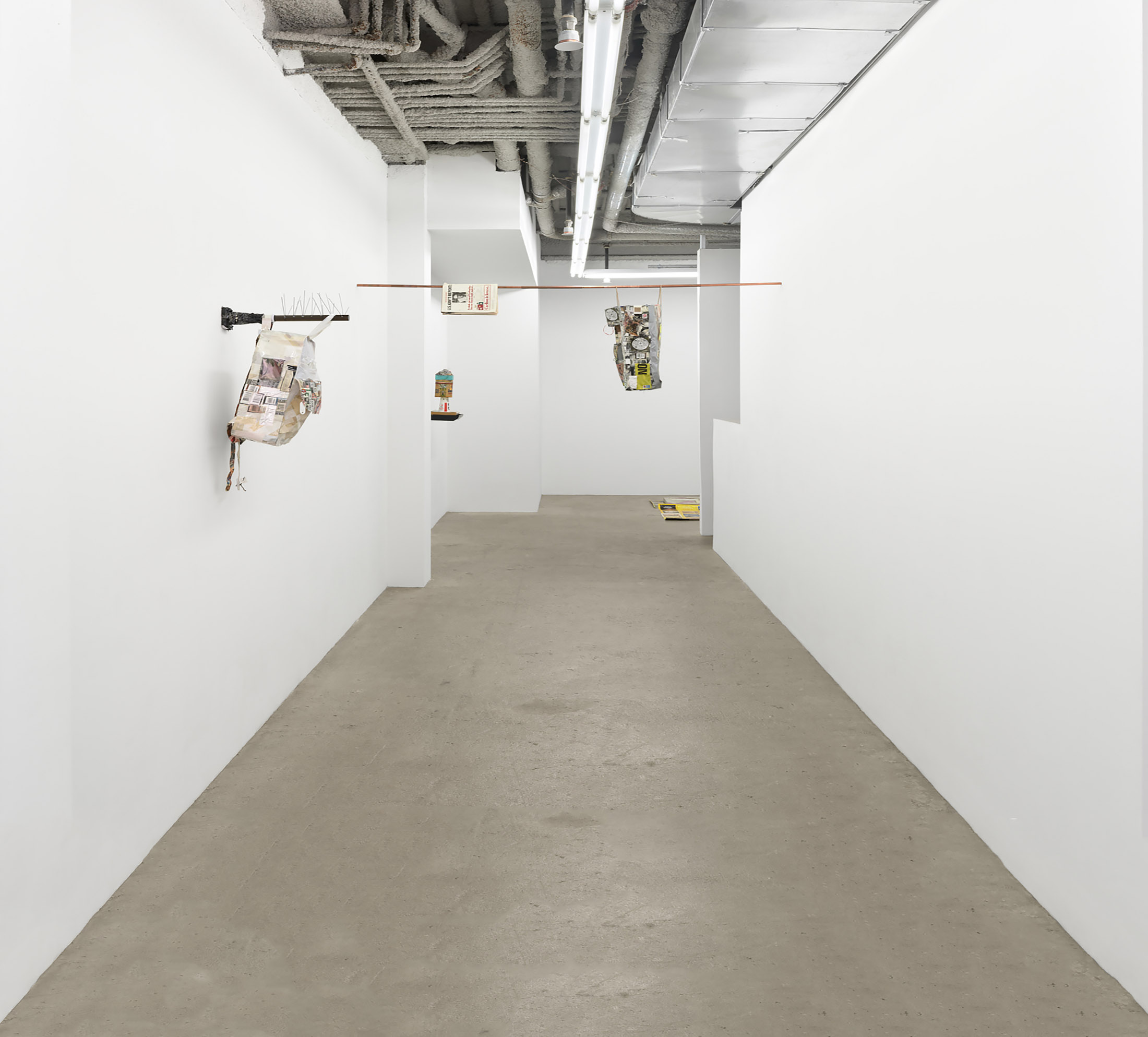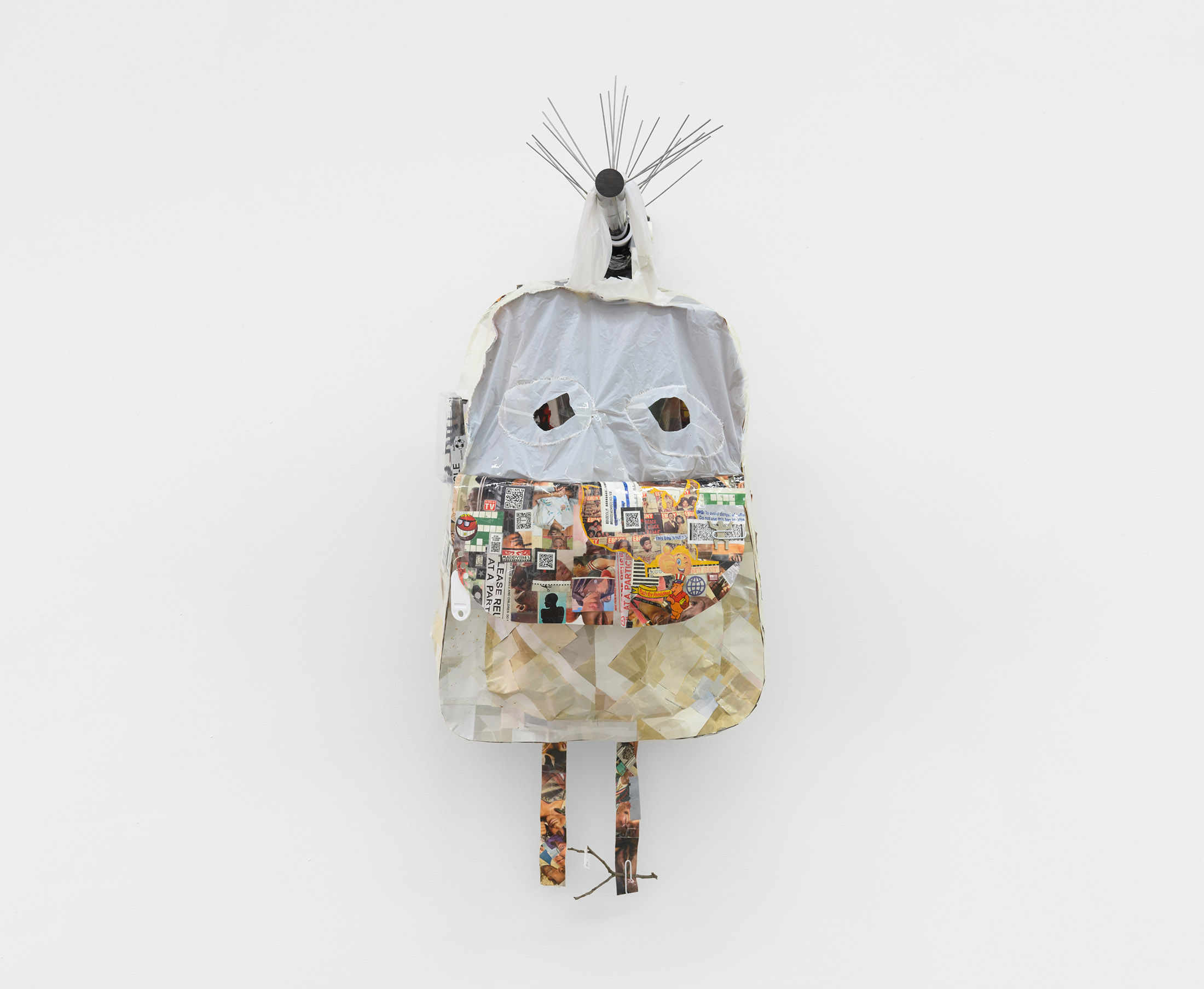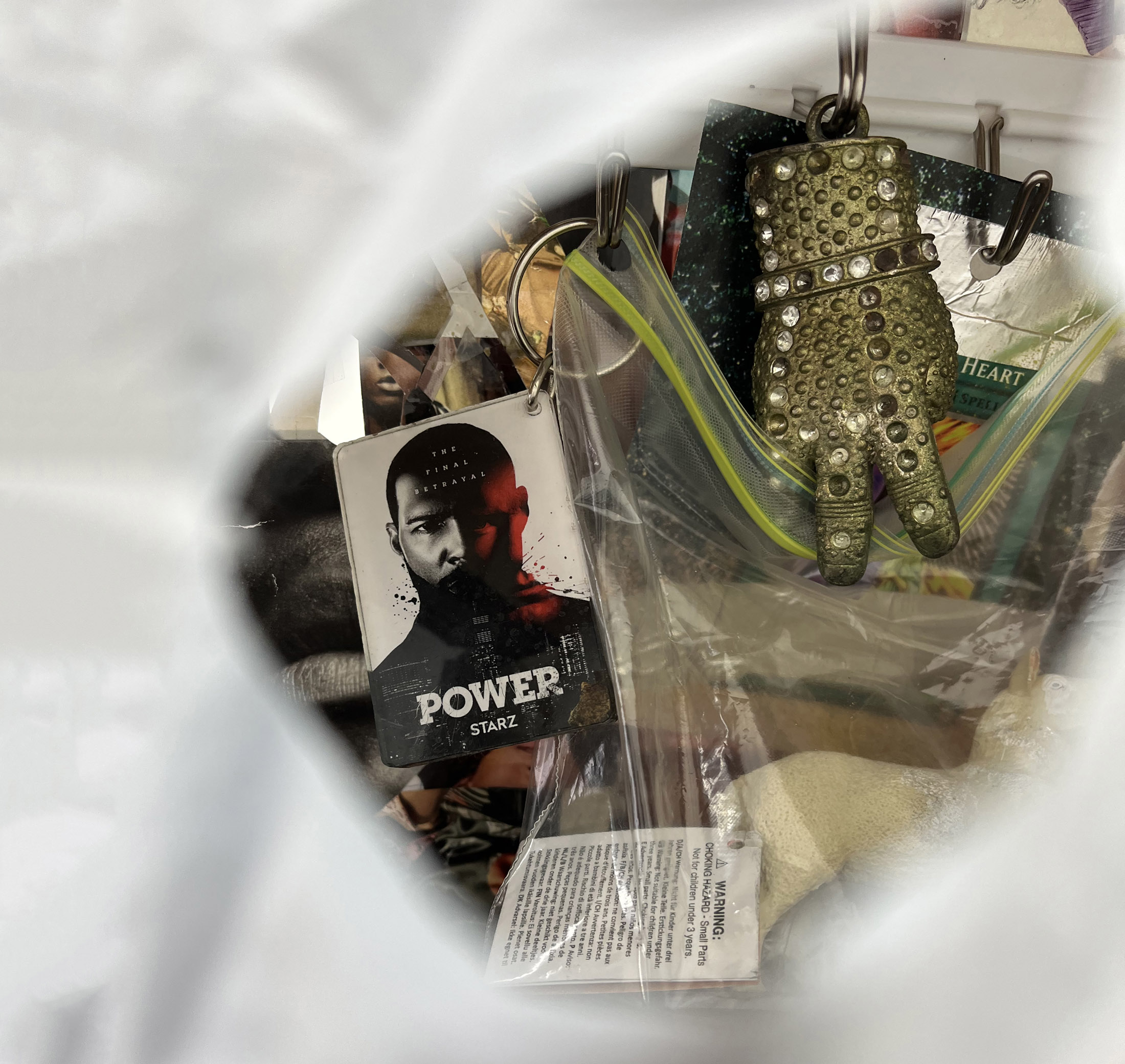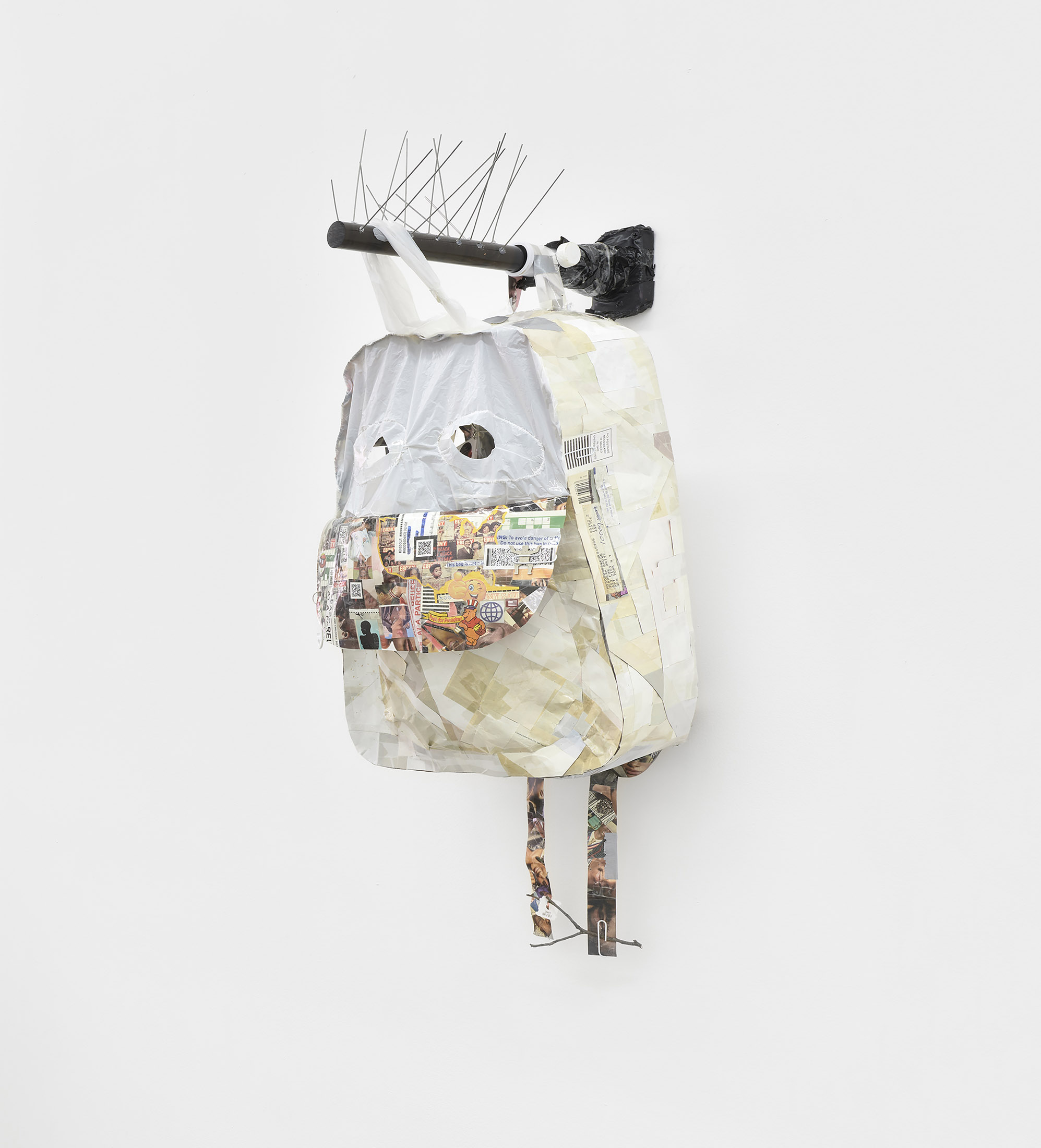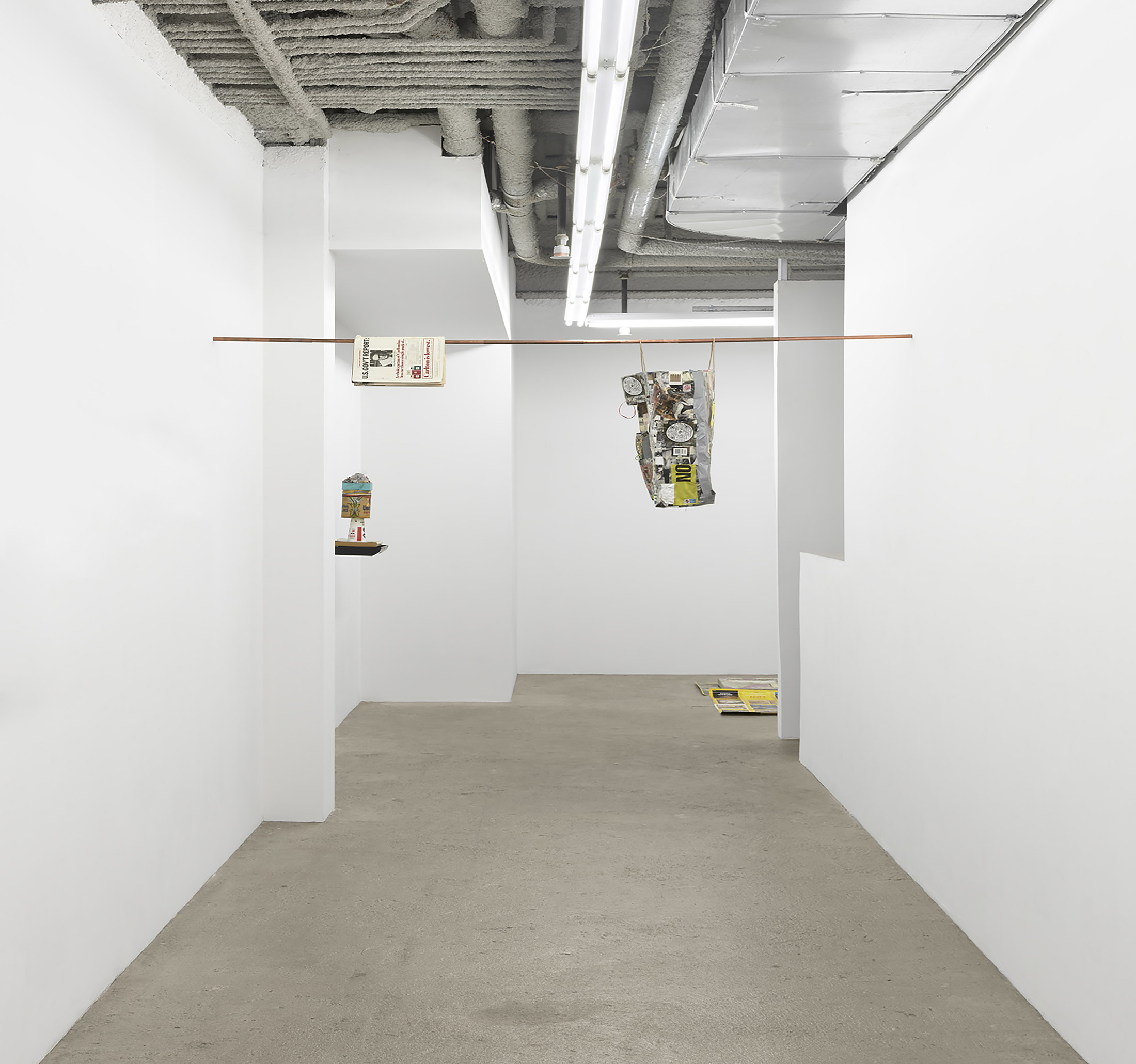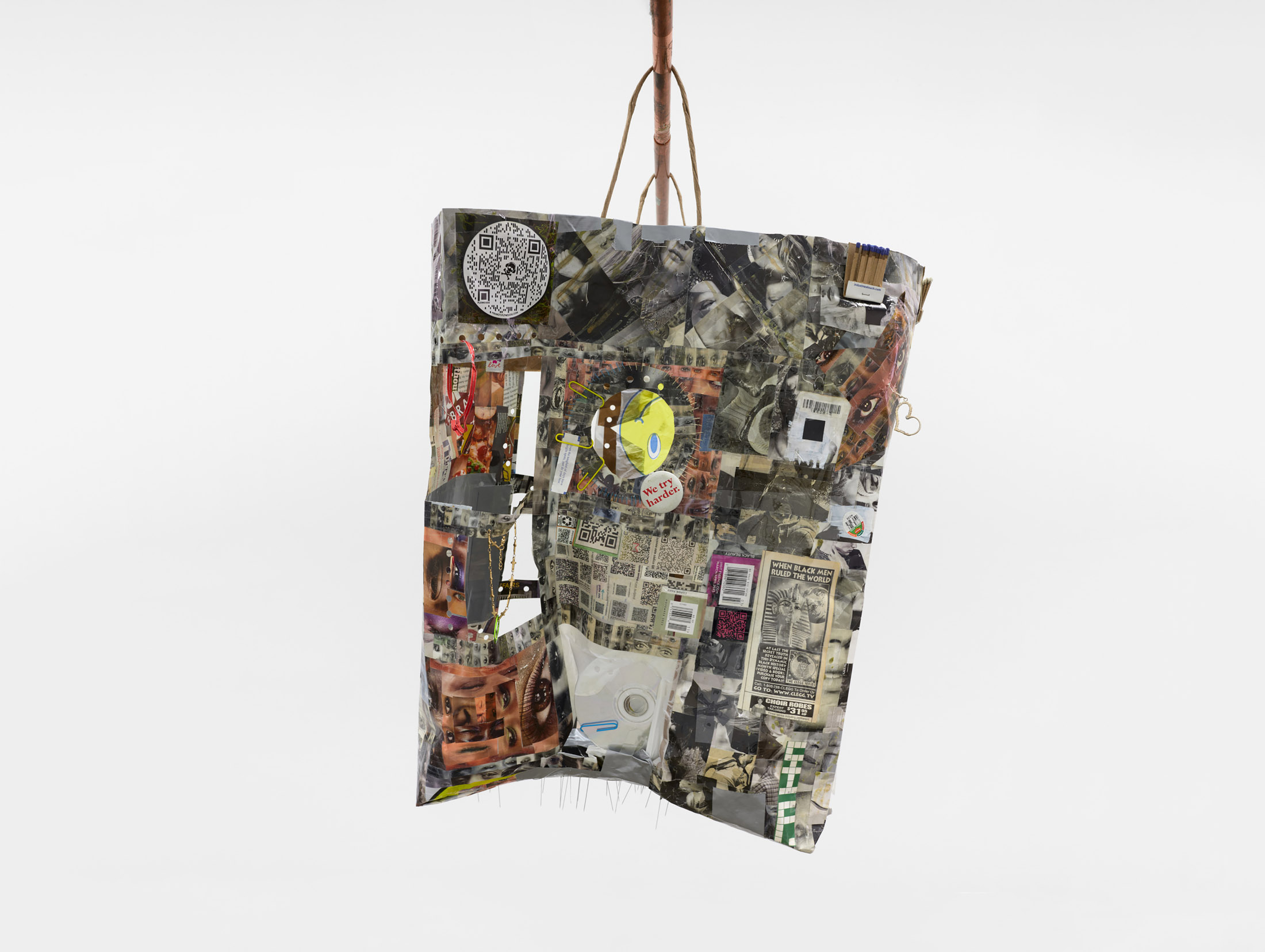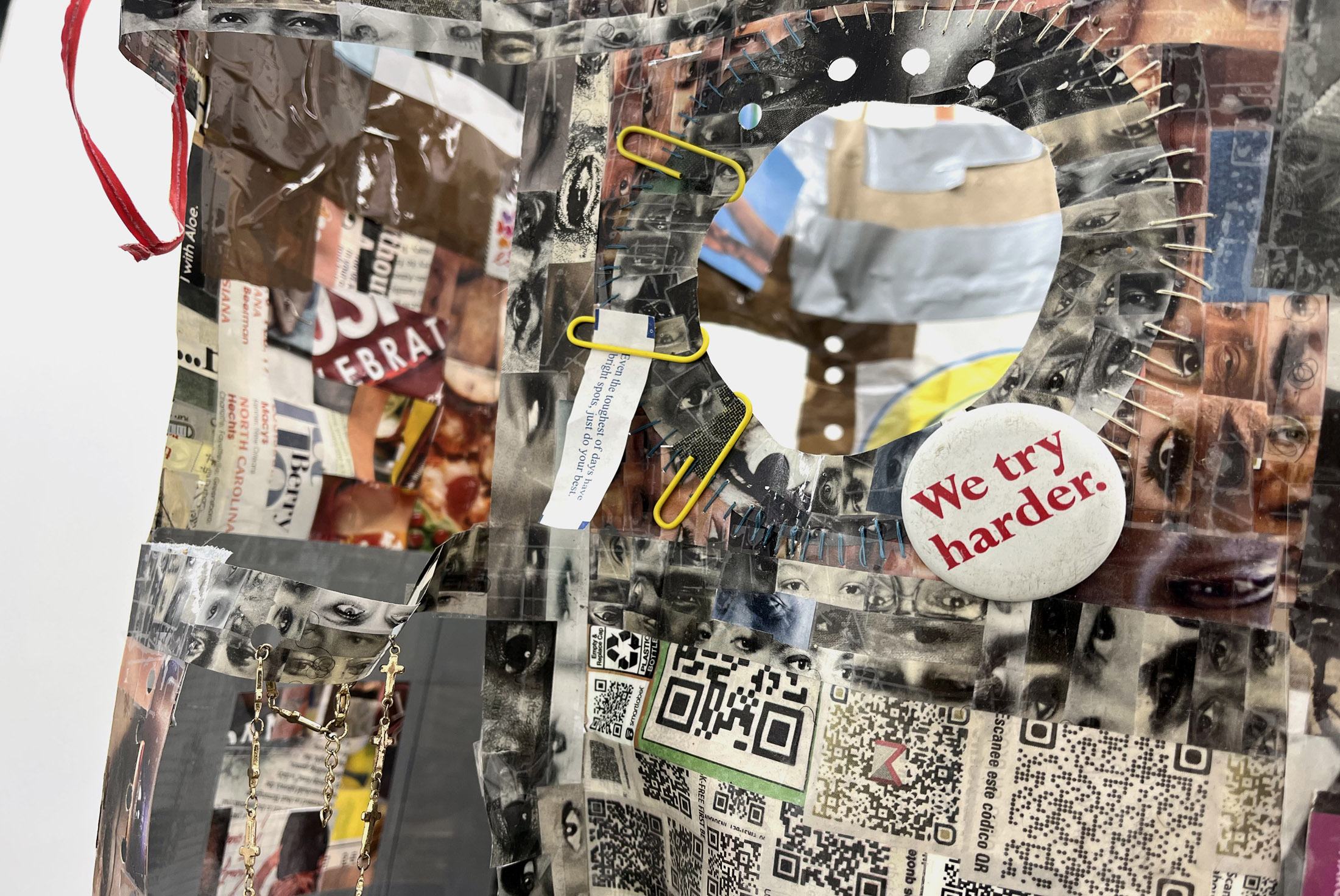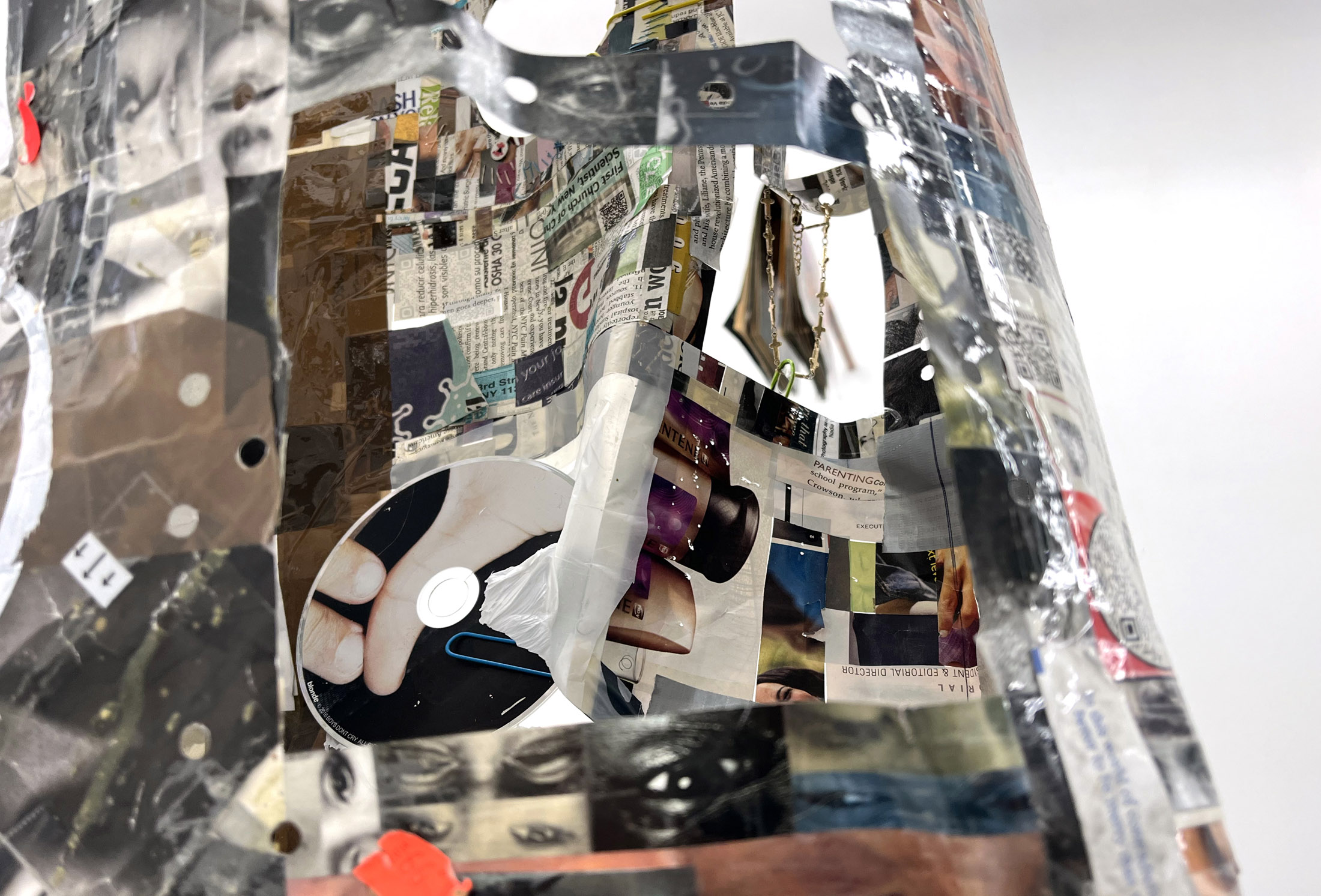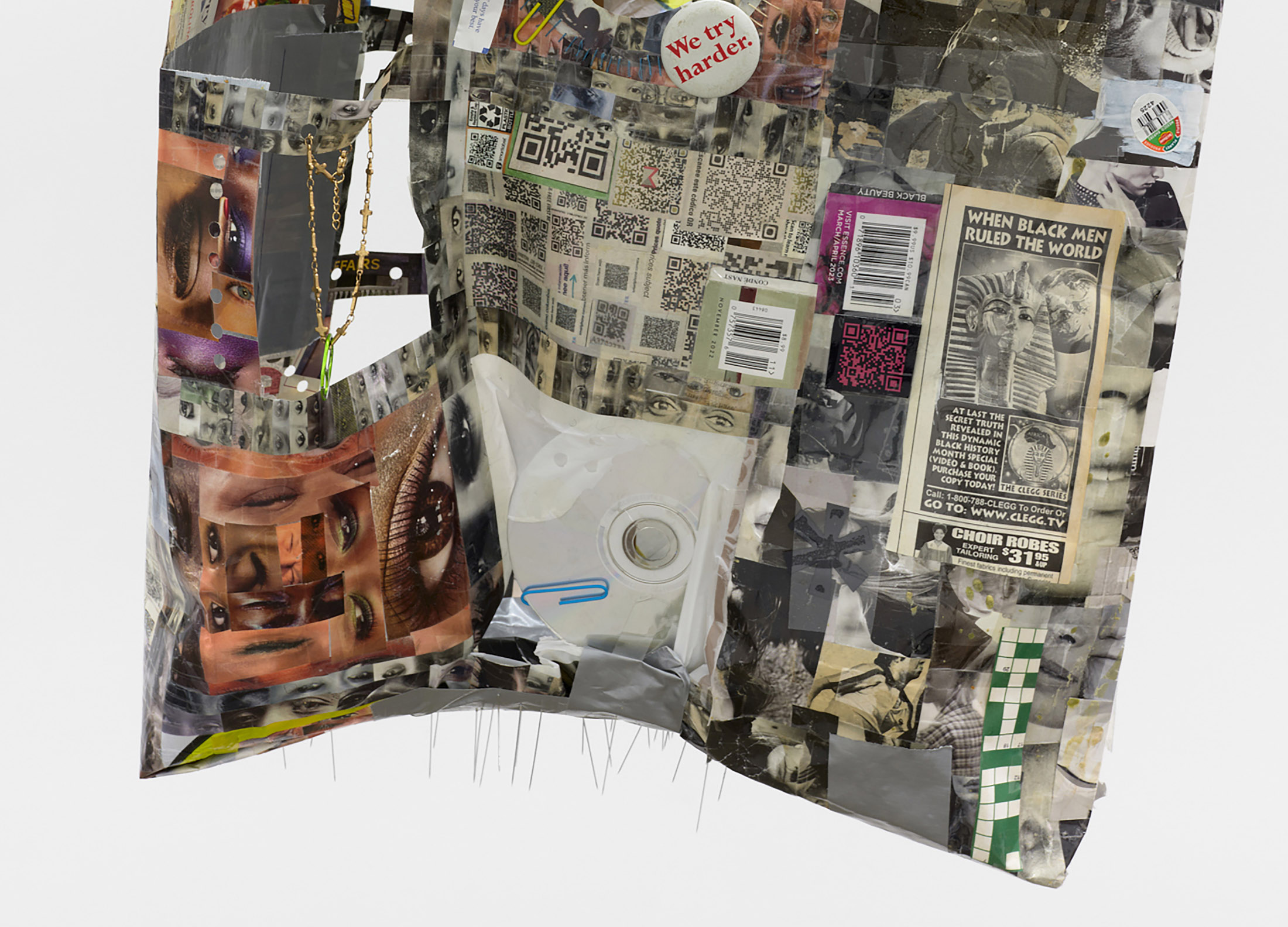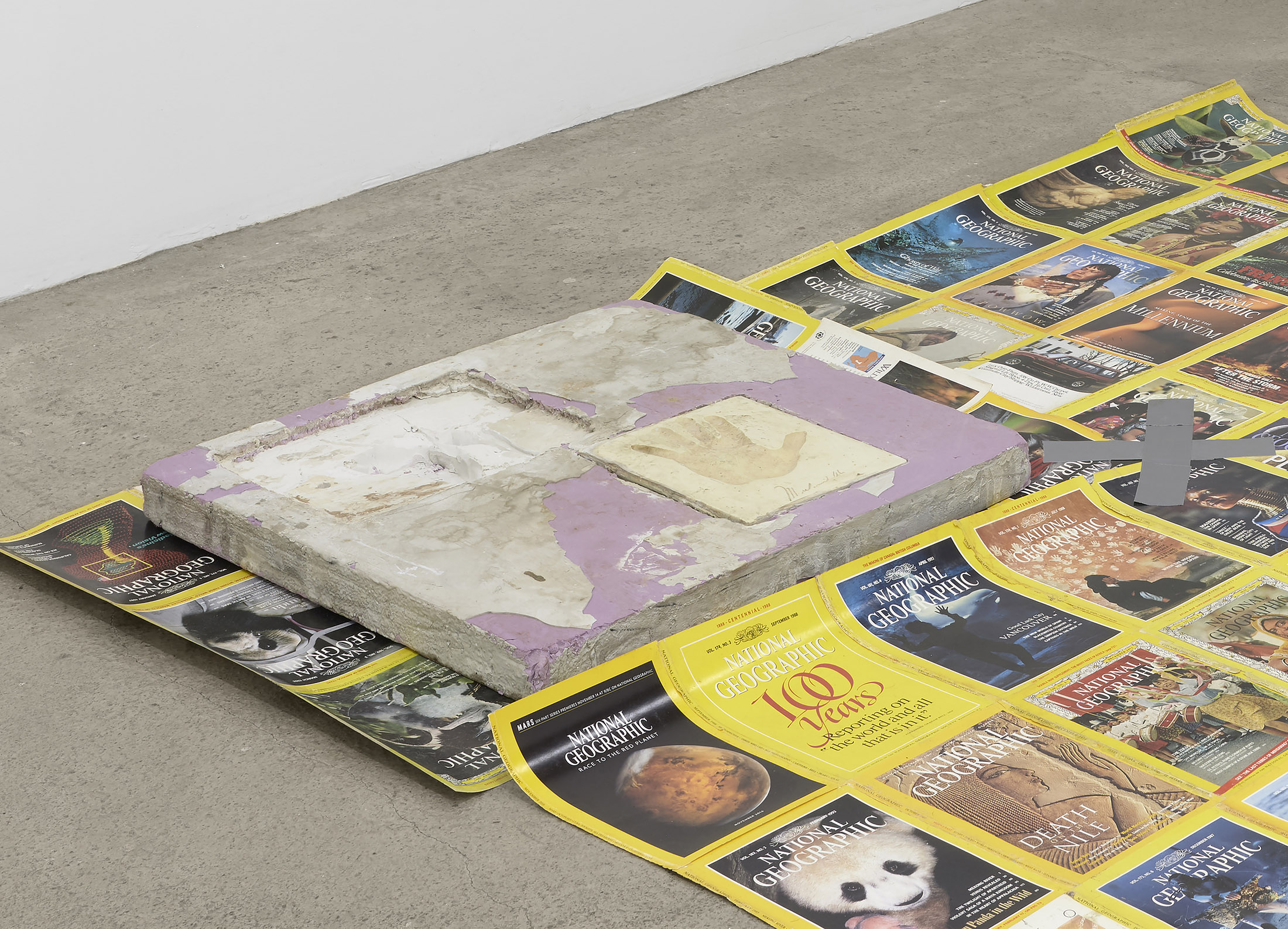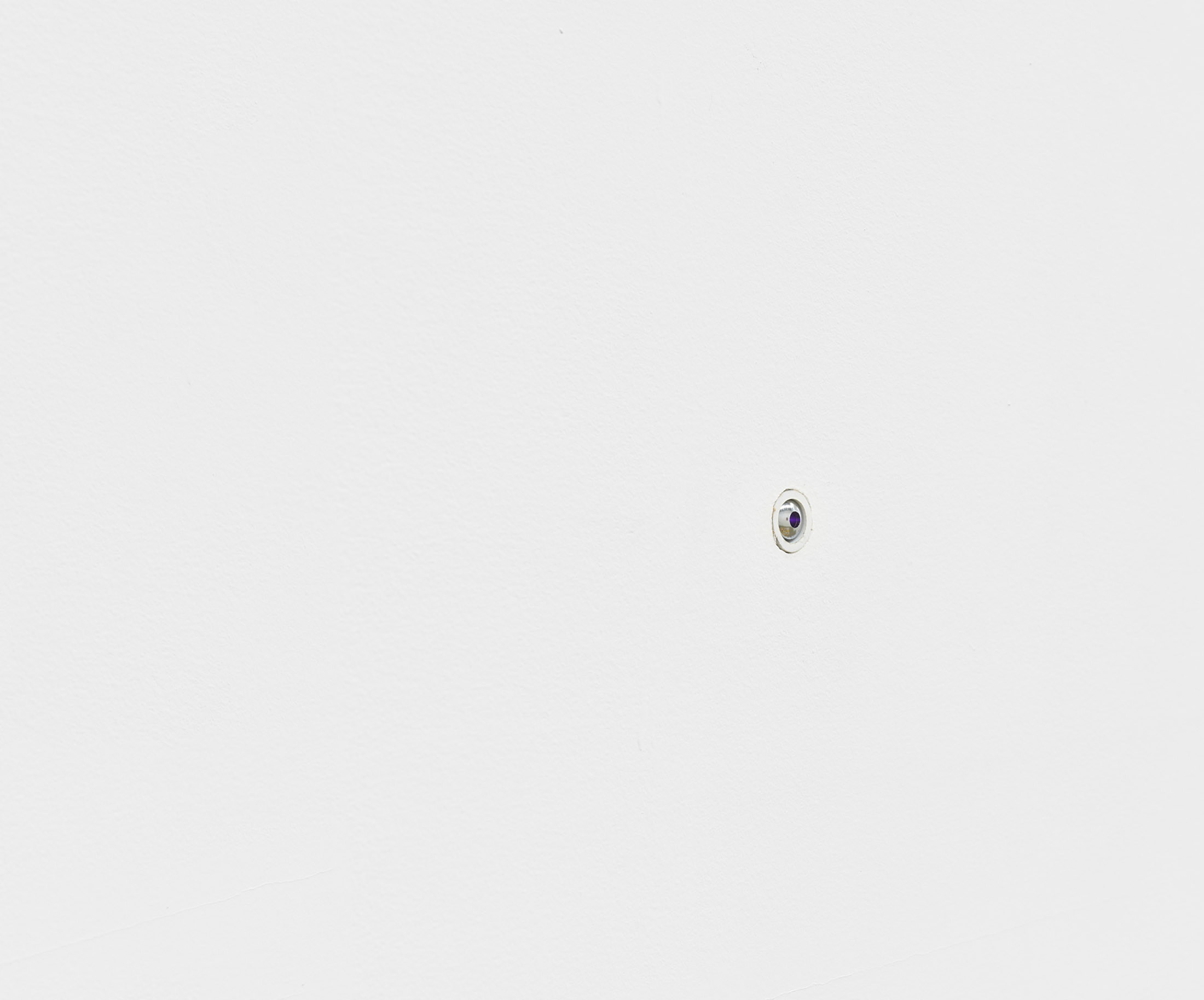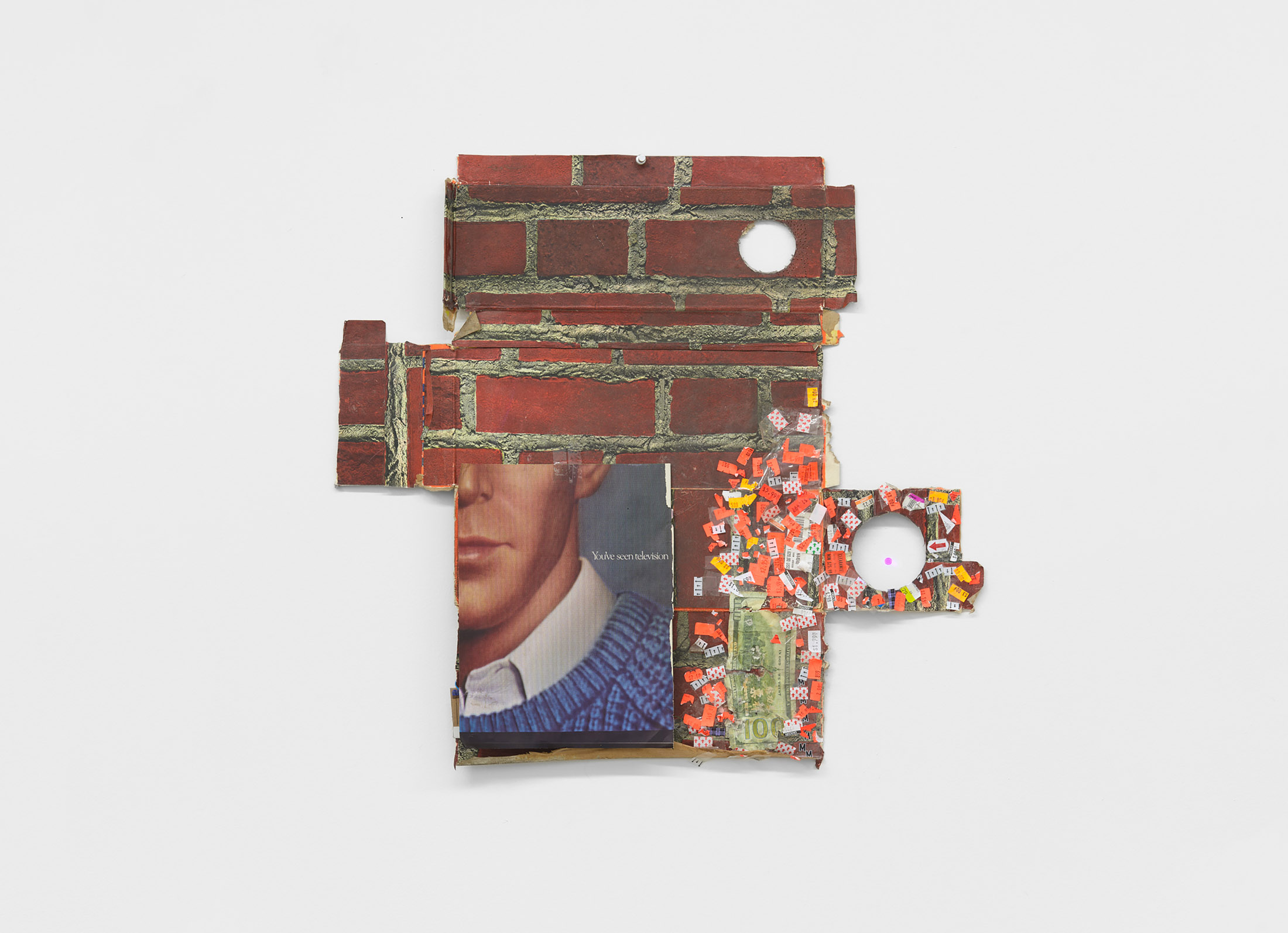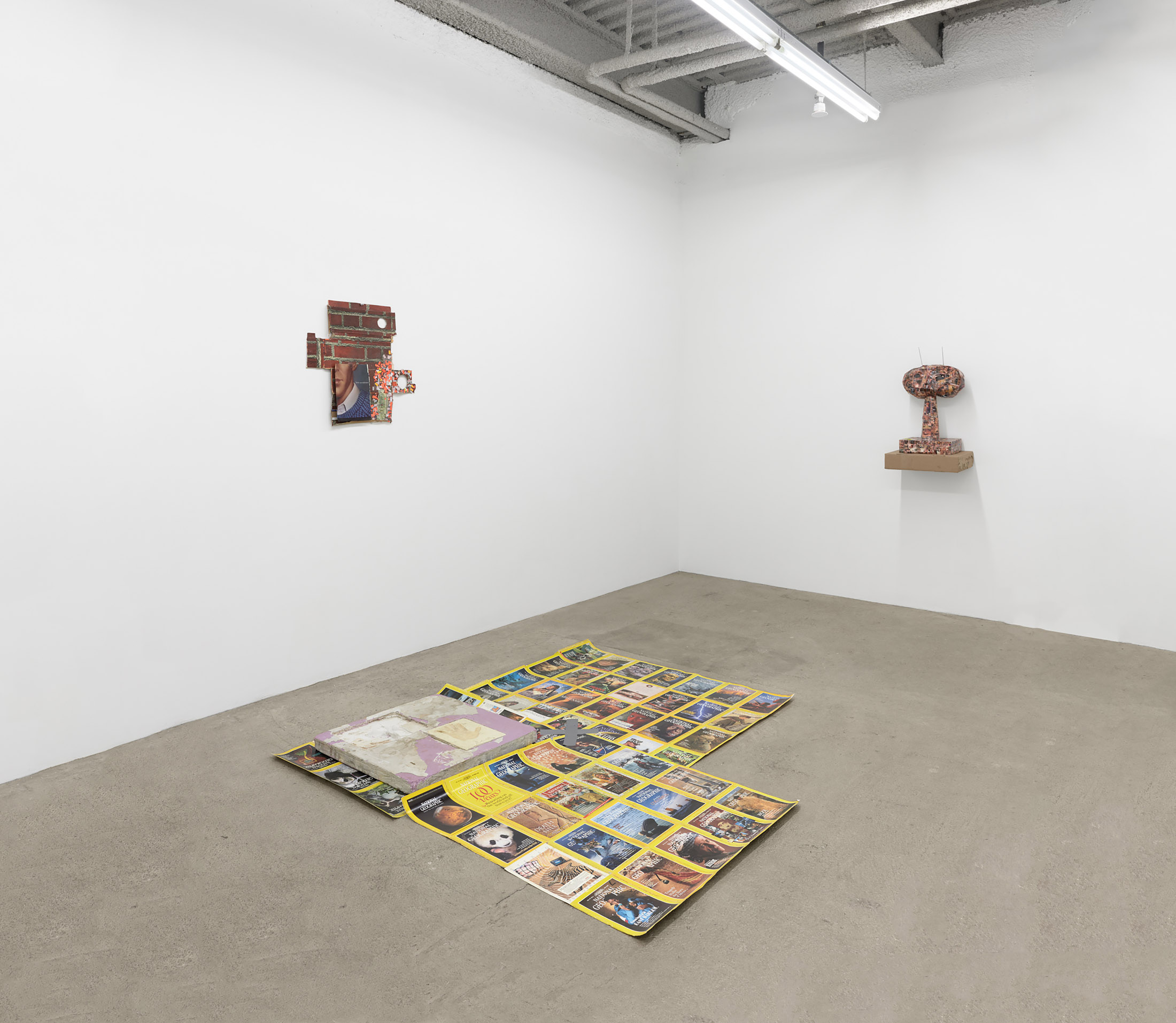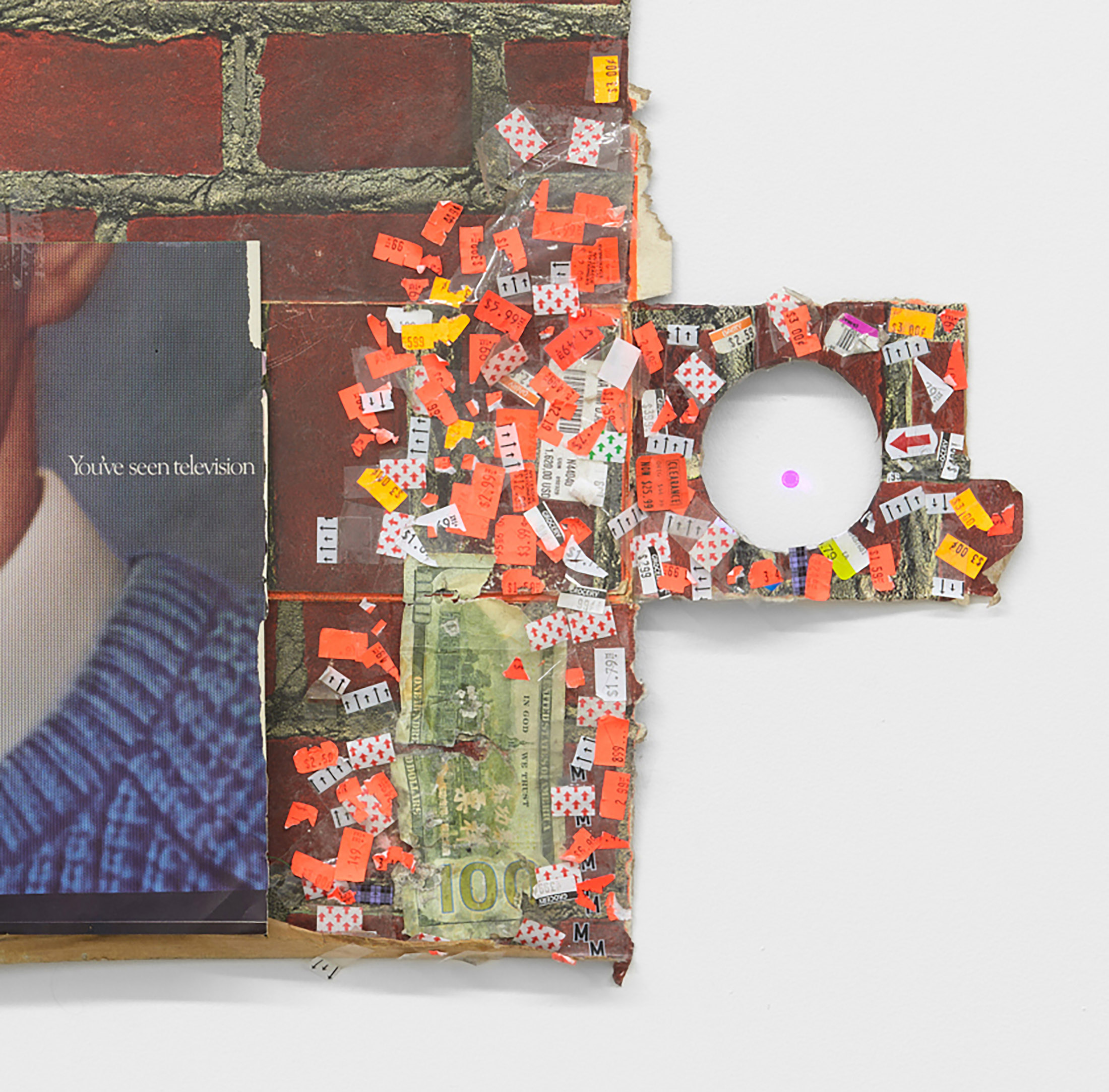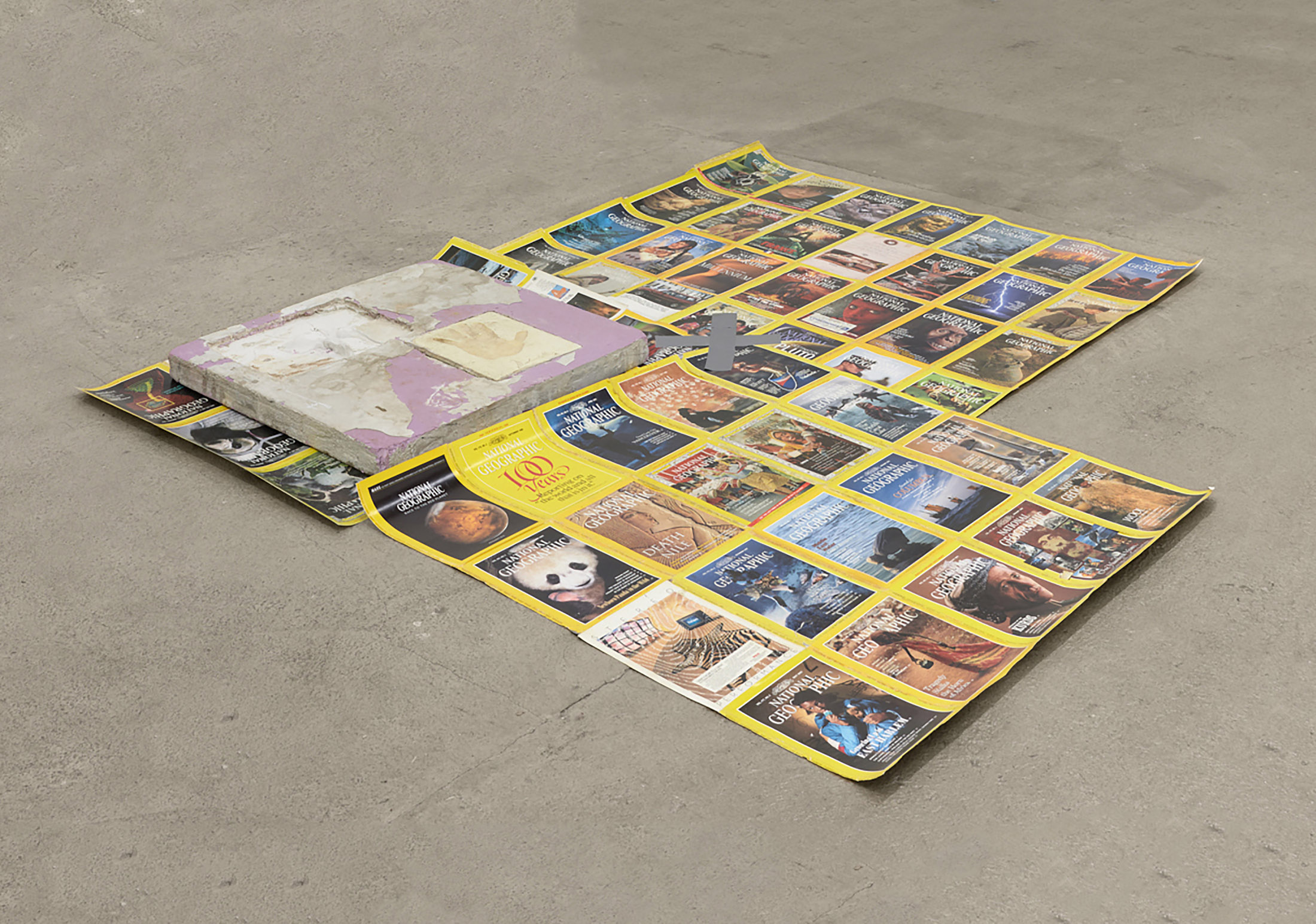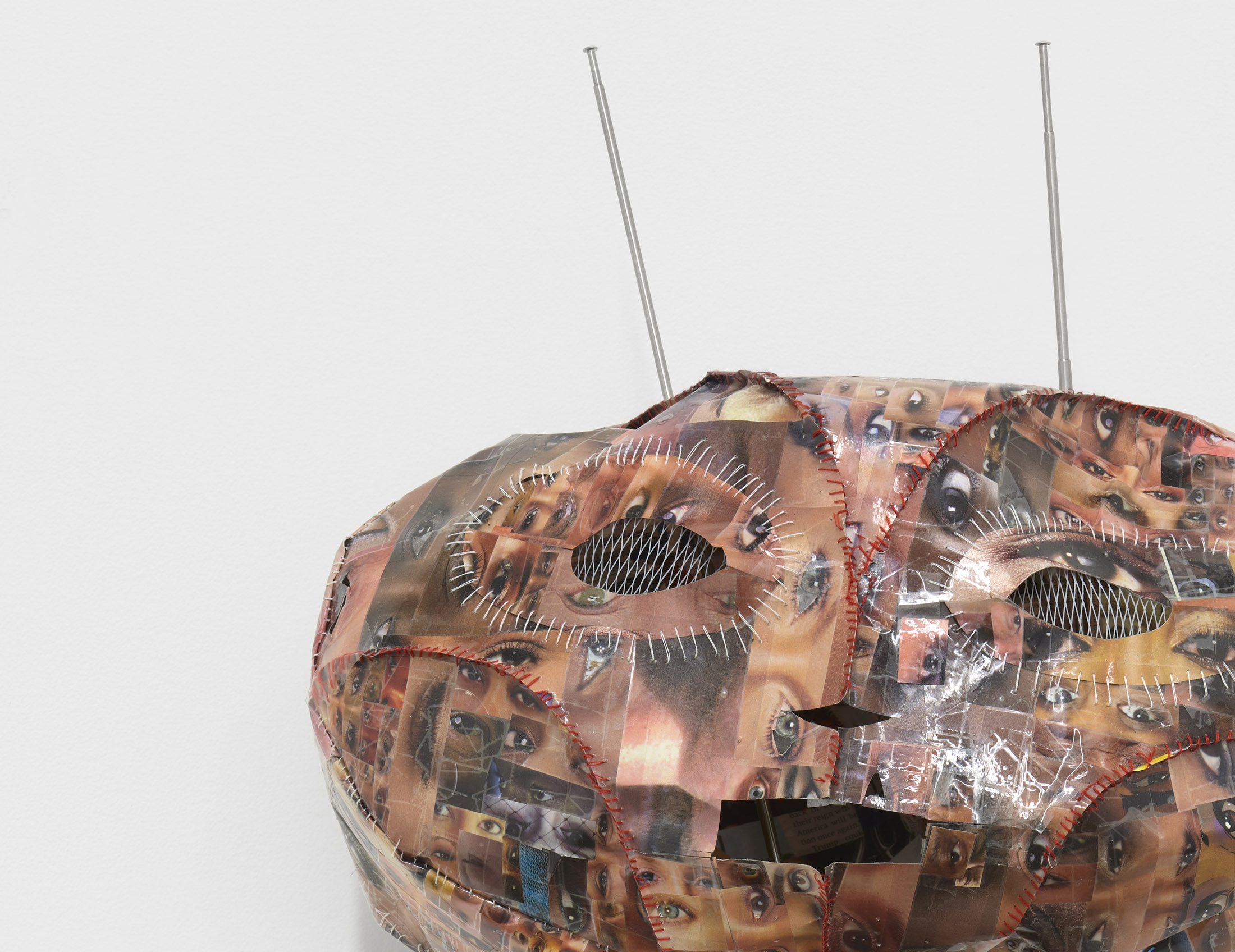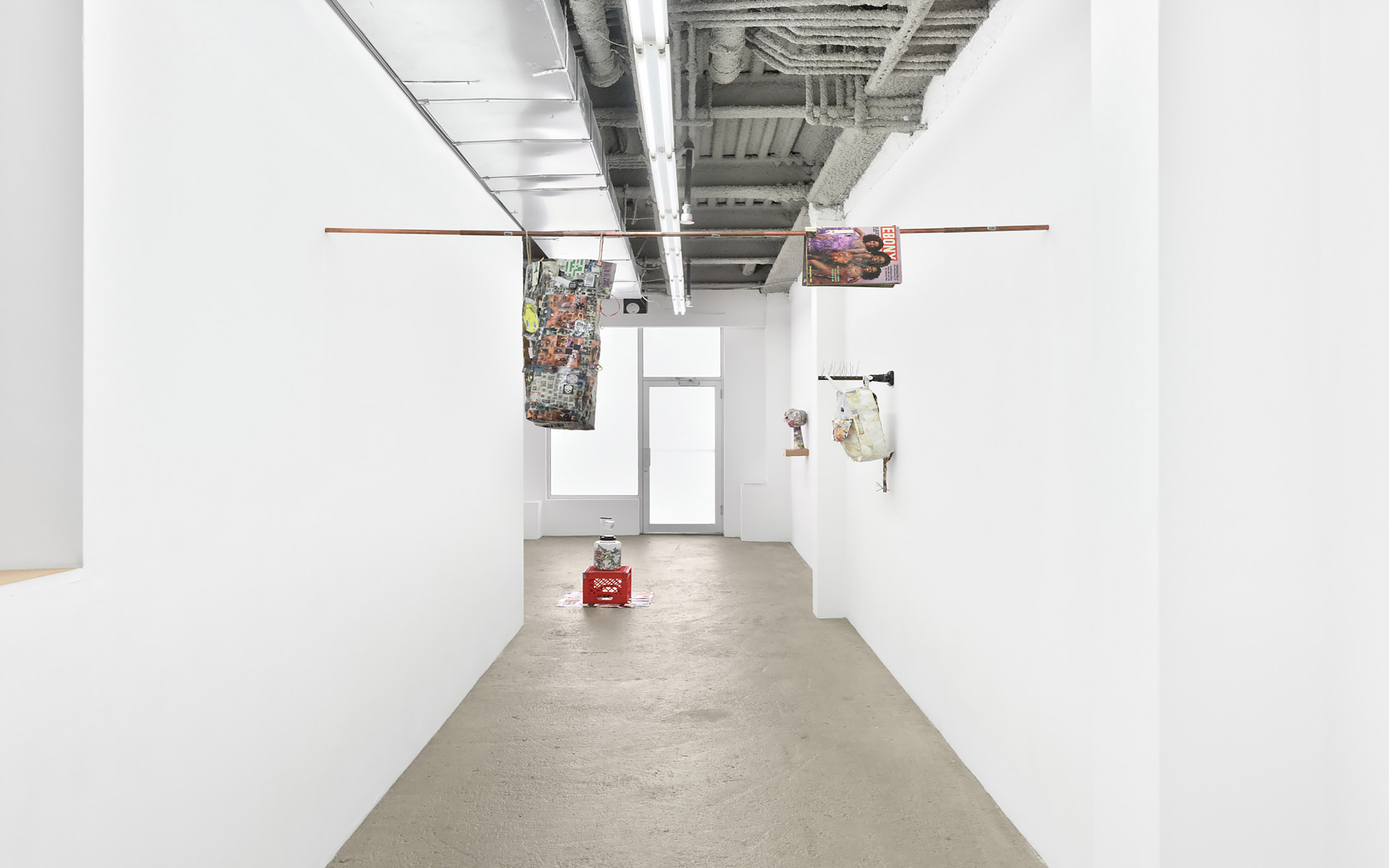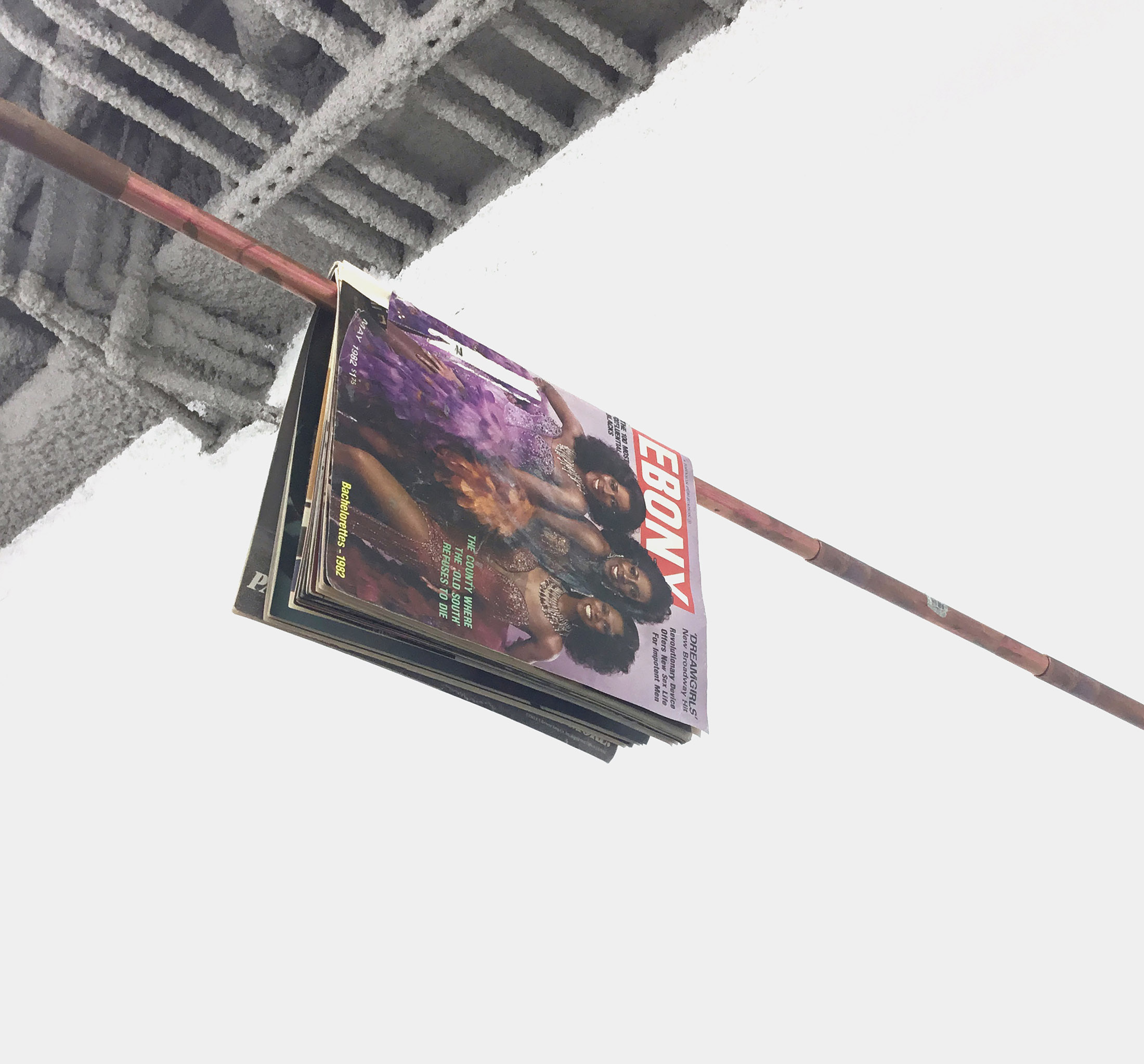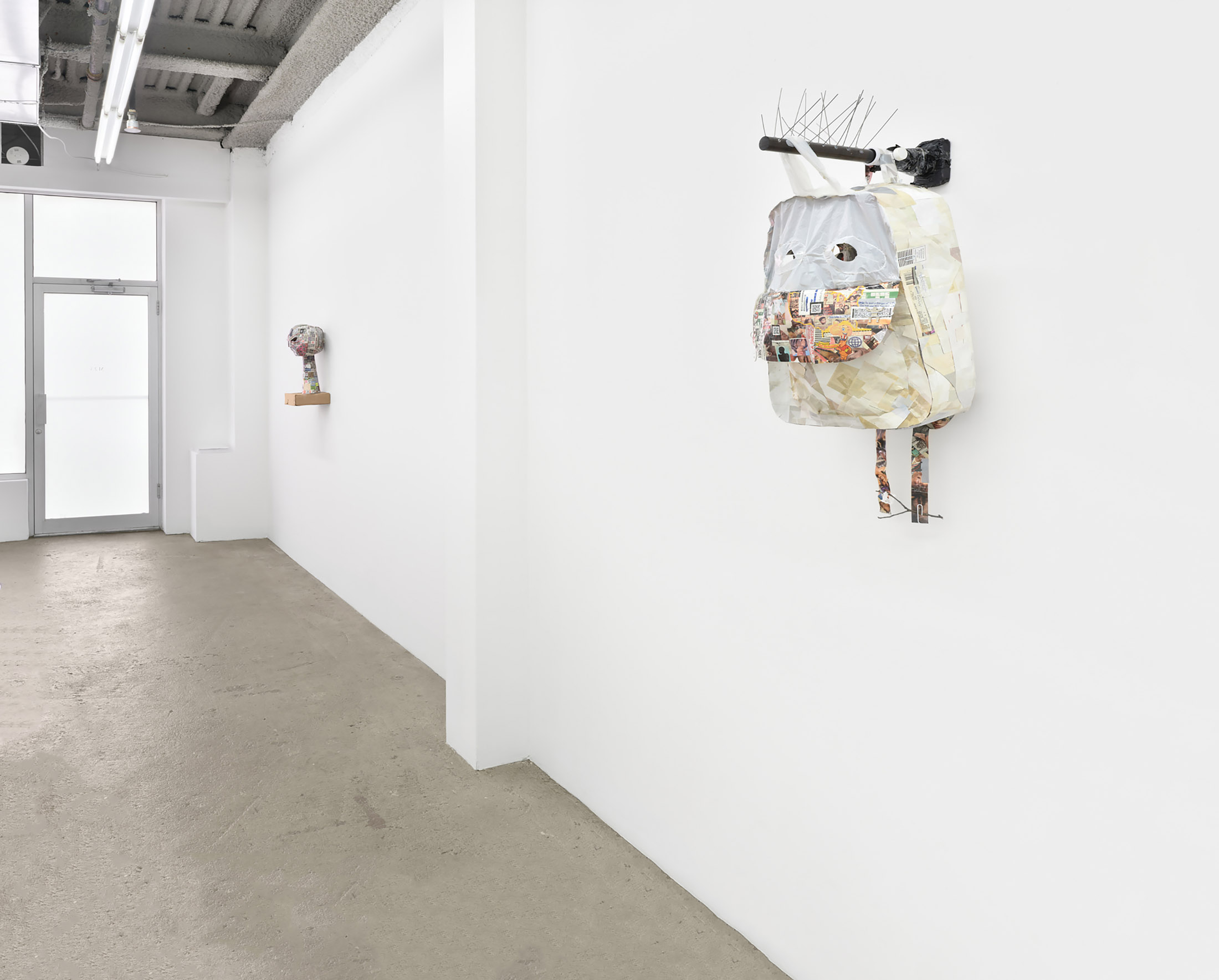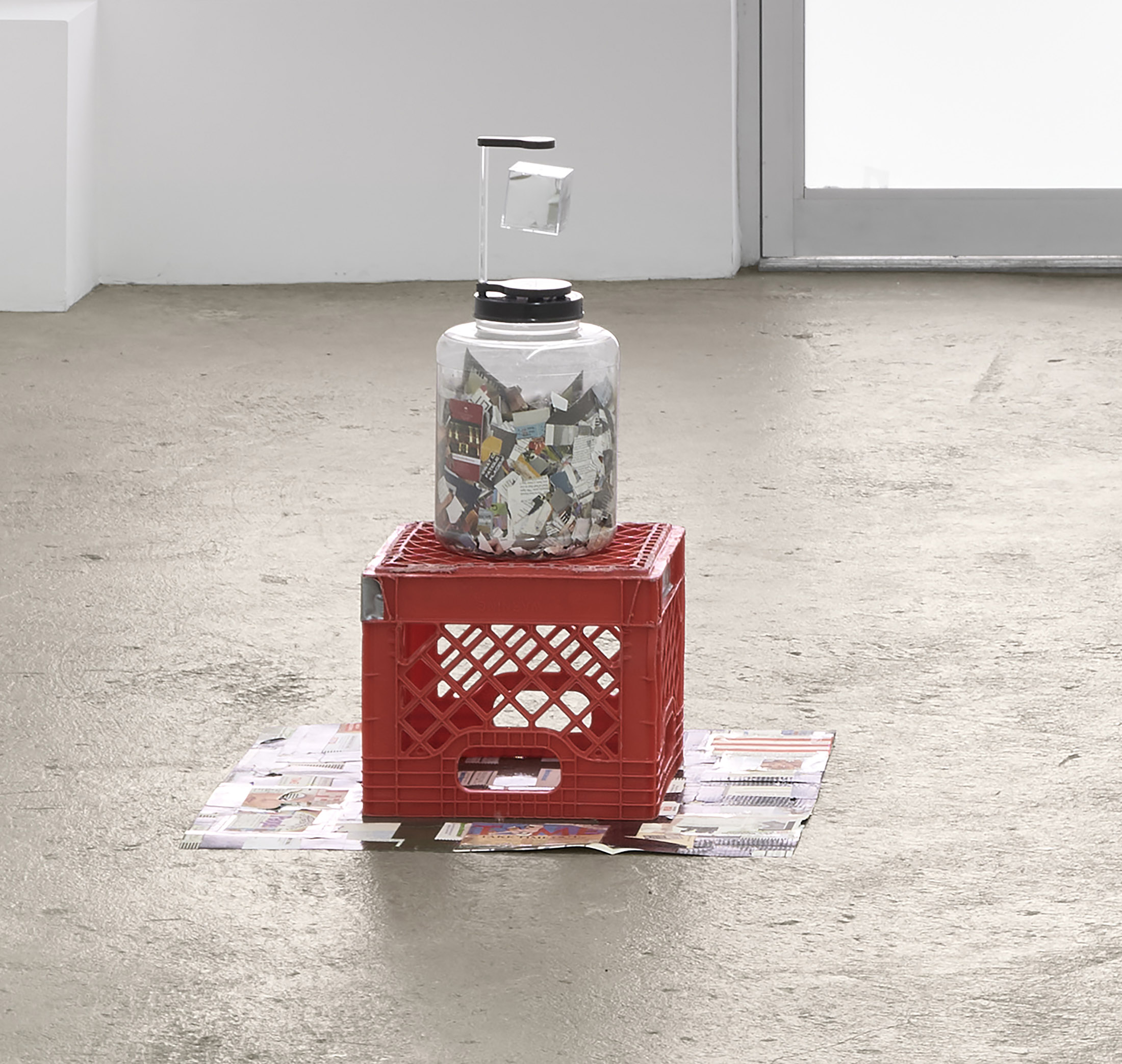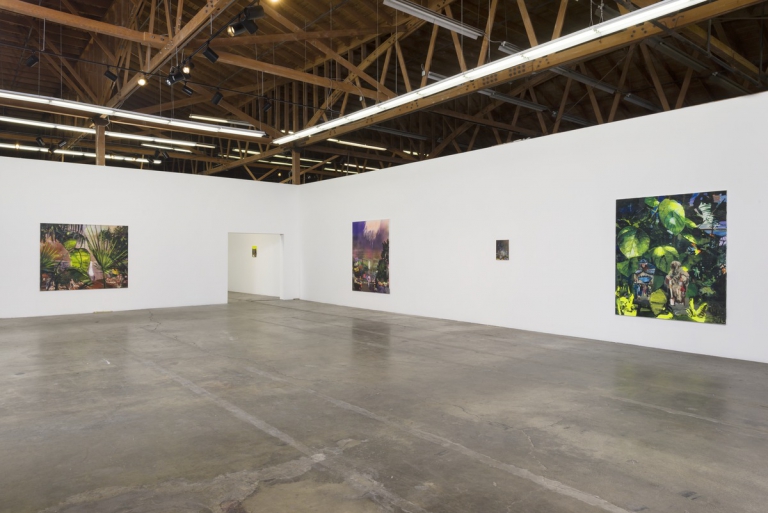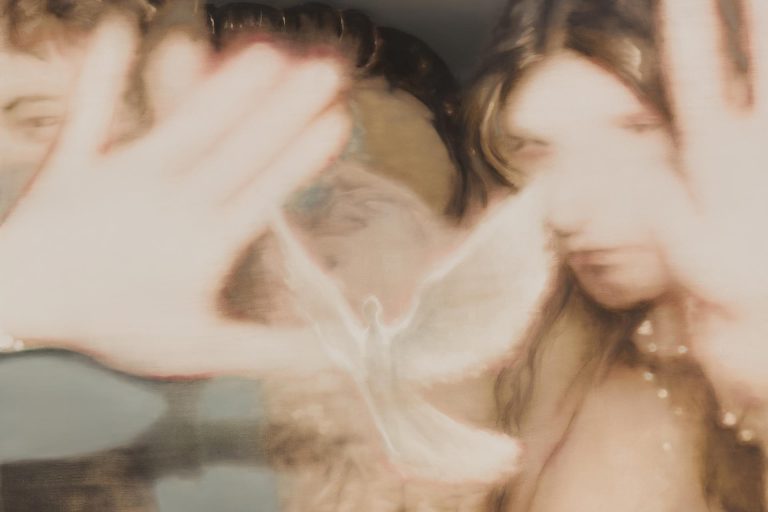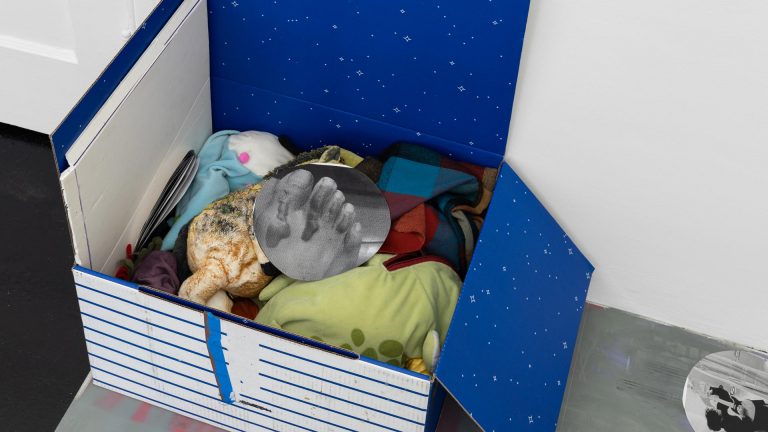Artist: Elzie Williams III
Exhibition title: Politics As Usual
Venue: M 2 3, New York, US
Date: June 1 – July 16, 2023
Photography: New Document / all images courtesy of the artist and M 2 3, New York
M 2 3 is pleased to present Politics As Usual, an exhibition of new work by Elzie Williams III. An Opening Reception will be held Thursday, 01 June 2023 from 6 to 8 pm. Please note: capacity inside the exhibition space is limited per the discretion of the gallery. The exhibit will be on view 01 June through 16 July 2023.
Is your face profiled on the cover of a magazine? No? Then you ain’t shit! This is Amerikkka. In Politics as Usual, Elzie Williams III’s first solo exhibition, the artist works through layers of visual projection to sound out the technological hold on us/ by us/for us, through the shadowy presence of products. Here productivity means bobbing and weaving in-and-out like a sewing needle between Black entertainment and what entertains the possibility of representing Blackness as such. Uncapturable in its totality, the unalienated joy of performance is celebrated, despite the hollow fungibility of a coded animation still tracking the disaster of branded bodies.
The exhibition opens with an homage to all peculiar little boys by way of a trapped figurine with a tail’s up U.S. dime (Monstro, 2023). In the original serialization of the 1880s fantasy tales titled The Adventures of Pinocchio by Carlo Collodi (later adapted by the Walt Disney corporation for the 1940s animation), the author tells the increasingly shocking story of a poor woodworker whose naughty creation fails to live up to his expectations. Hearkening back to various paternalistic mytho-theologies, the economically productive quality of shaming is brought to bear on the modern U.S. context through the racialization of aspirational classes made up of generations of failed feudal peasantry, genocidal colonizers, and greedy third-party-providers—pirates, mercenaries, or carpetbaggers.
The contemporary result is a self-applied lash forever driving on the bamboozled to embrace the durability of our infinitely advertised excess, both as a constant source of vitality readily enjoyed by all liberals and cosmopolitan elites, and perpetually available for economic exploitation by the one percent. For example, when the light-skin entrepreneurial culture workers rush to cloak their algorithm in love for the late Tina Turner, I now worry over whether the hustling dark-skin Black artist, with the vocal cords of a goddess, gets cut out of her inheritance. But if the world is ending anyway, who cares if Dr. Dre sells “Beats” to Apple or holds onto the company for generational wealth?
In Elzie’s timely exhibition, the artist reflects on the pragmatic trend of using QR codes as a touchless alternative for both sharing art and producing sales. By collaging thousands of cut-out paper QR-codes that send viewers exhaustingly on toward all manner of other products and services, the artist turns the commodification of his creation into a duality–a consumable-uncapturable that shrugs off the physicality of otherness, stripped down to expose the hollow fungibility of a mere flipper’s gaze.
Shrouding cultural issues in trendiness, or moving across media as so many time capsules–organized here through alien busts or hand-made Central Processing Units, as well as the seduction of obsolete antennae–dances past the false dichotomy of any analog-digital divide. Humble three-dimensional sculptures made of found materials take on totemic proportions. As the only Black student selected for their MFA cohort at Columbia University, the layer of a white backpack lined “peek-a-boo” style with Black stars opens up the history of iconicity functioning on a parallel with illicit notoriety. What is that feeling of emptiness waiting to be filled again only after a few hours of approximating luxury-as-freedom?
Tap-Tap-Tap goes the sound of Web3 gamification of conspicuous consumption. But what happens once the thick plastic container of your Sephora bag inevitably begins to deflate in a corner like an old giant helium-filled birthday balloon? Showing us to ourselves collectively by their sheer overwhelming presence, Elzie’s portrait portals move beyond the fear of touch towards the deep cuts of more traditional sculptors. However, celebrities pop up on surfaces hinting that we are all included when it comes to being collectively aware of staying focus-group approved. Mercantile Business (2023) #stax like a record player, playing out and playing on our here-and-now racialized psychoanalytic calculations that get ‘round to replacing an image of Uncle Ben-as-Uncle Tom with a new-and-improved Colonel (Jack Harlow) Sanders.
— Darla Migan
Elzie Williams III (American, b. 1993) holds an MFA in sculpture from Columbia University School of the Arts, New York (2022), and a BFA from The Cooper Union for the Advancement of Science and Art, New York (2015). They are the first recipient of the Solomon B. Hayden Fellowship, administered through Columbia University, NY. The award was founded to support diverse voices in art by Lisson Gallery, Clearing Gallery, and artist Hugh Hayden in honor of Hayden’s late father, Solomon B. Hayden who was a math teacher. Williams’ work was included in Eponymous with Dominic Palarachio and Bat-Ami Rivlin, M 2 3, New York (2021); and on view with Lyn Lui at François Ghebaly, New York (2021). Recent exhibitions include Arrangements in Black at Phillips, New York (2022); exhibitions at Clearing in Brooklyn and Los Angeles (2022); Half Gallery, New York (2022); Thierry Goldberg, New York (2023); as well as MZ.25 (My Condolences), an exhibition by Monsieur Zohore at M+B, Los Angeles (2023); and The School of Visual Arts (SVA) Curatorial Thesis Exhibition Transcending the Ideal: Reimagining Femininity and its Relationship to Power, curated by Virginia Ingram (2023).

